Indigenous voice to parliament: The quiet optimism that keeps dream alive for Yes camp
While the polls are against the Yes camp, Megan Davis is balancing her faith in the nation’s goodwill against increasing negative talk.
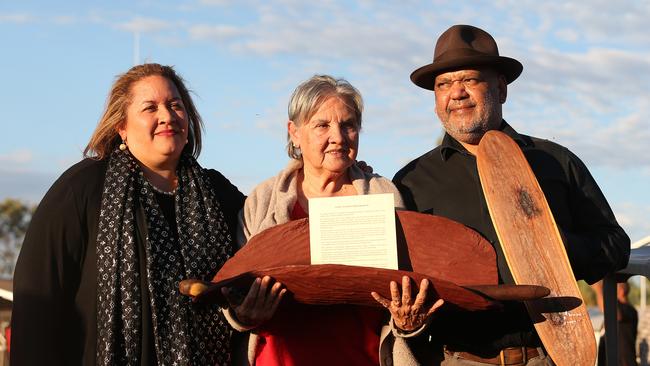
As the anti-voice fundraisers CPAC (Conservative Political Action Conference) triumphantly emailed their Australian followers on Thursday with the headline: “It’s over”, Megan Davis was thinking about the hope and goodwill of a people’s movement that is not yet defeated. It’s how she and other Indigenous leaders have kept the voice alive since 2017, when politicians wrote it off.
“We have always believed in the goodwill of the Australian people. We have always believed we would win,” she tells Inquirer. “Even when (Malcolm) Turnbull said ‘No’, we turned it into a ‘Yes’, because recognition is so important, we never gave up.”
If the proposal for an Indigenous voice to parliament is rejected on Saturday, as polls have been forecasting for months, it will be a rejection that grassroots Indigenous Australians feared when they were asked to tell their fellow Australians how they wished to be recognised in the Constitution.
This was a commitment of time and faith for each participant. It involved three days of civics education, discussions about the past and how the future can be better.
Many Indigenous people did this work warily, not daring to believe they would be listened to, but ultimately 1200 Indigenous people created the Uluru Statement from the Heart and presented it to their fellow Australians in a grand gesture on May 27, 2017.
According to Ken Wyatt, who at the time was minister for aged care, then prime minister Malcolm Turnbull looked at the Uluru Statement and its call for a voice in the Referendum Council’s final report and said: “This is not what I asked for.”
Davis, the Cobble Cobble woman and constitutional lawyer who designed the 12 meetings around Australia that culminated at Uluru, tells Inquirer: “So much effort went into this in terms of making sure we pursued political agreements, that we did the right thing with the law, checked with the best lawyers, checked with the best constitutional lawyers … just always making sure that everything was done thoroughly and properly and seriously.
“We had just had never anticipated we would arrive with this opportunity in a period of Australian history where these incredibly difficult to manage dynamics of American style, Trumpian campaign tactics arrived on our shores.
“Perhaps (we were) a little bit naive that in doing all of that really thorough work around the law and the politics, that actually, it would not come down to that. That lies could dominate what was an earnest exercise on the part of so many mob to be recognised in Australian democracy.”
Davis still believed the referendum would succeed when she spoke to Inquirer on Thursday from Brisbane, about 30km north of the public housing estate where she grew up.
Even as the polls were showing a downward trend in recent months, she and other Indigenous leaders from the Uluru Dialogue pressed on with what they knew to be the most effective form of campaigning; one-on-one conversations with Australians.
It was also the most labour-intensive way to campaign. While the No campaign relied heavily on letterbox drops and Robocalls, Yes23 doorknocked and the Uluru Dialogue sent young and old Indigenous leaders everywhere with their information roadshow. They hosted intimate gatherings with sceptical and undecided voters in CWA halls and shire offices from Cape York to far western NSW.
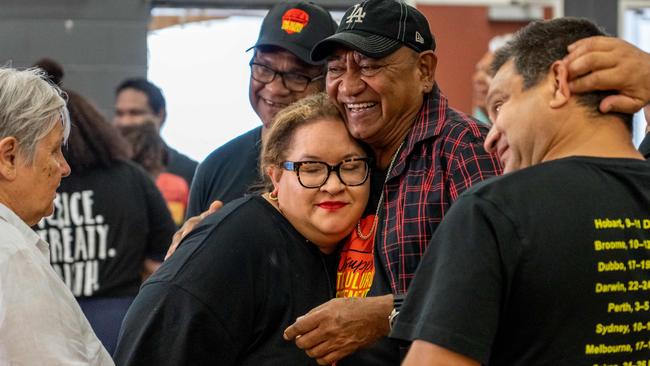
Geoff Scott, a Wiradjuri elder, says he found the most disarming tactic was to just be open. He invited non-Indigenous people to ask any question they wanted no matter how offensive they worried it might be. For example, he says he was asked if Aboriginal people get free cars or free home loans.
“I said no but if you know where that is available let us know and everyone had a laugh,” he says.
What followed were open talks, without judgment. Scott says people told him how much they appreciated the chance to have a proper talk with an Indigenous person and get their questions answered.
However, what the Uluru Dialogue also found this year was a frightening lack of trust in government. Not the Albanese government, necessarily, but governments in general. The Uluru Dialogue knew that trust in public institutions and political parties had fallen since the last referendum in 1999, when Australians said no to both a republic and constitutional recognition of Indigenous Australians. It is one of the reasons they believed there was still a path to victory for the voice referendum after Opposition Leader Peter Dutton surprised nobody with his announcement in April that the Liberals would campaign against the voice.
This was the month before anyone knew what the precise words of the proposed constitutional amendment for the voice would be, and before the referendum working group published its 12 design principles for how the voice would operate.
However, the distrust for governments that Davis and her group encountered was well beyond what they expected. “When we go around to Australians now talking about the voice as we have all year, doing face-to-face, all they ever tell us is they do not trust the government, so why would we trust them,” Davis says.
“As a constitutional lawyer, I have to say I find it alarming … I would find it alarming if I was a politician to know the low levels of trust and faith that our people, the Australian people, have in politicians and our democracy, to listen to and respond to the issues that are facing Australians every day.
“And one of the major issues that people have raised with us was actually not division, and it’s not racism, but on the ground they say, ‘Why on earth would you do this when you cannot trust them? We do not trust them, why do you trust them? Why do you want to be in there (the Constitution), they’re never going to listen to you’.”
Davis says that at these information sessions, Australians listened and understood the advice that the voice would give would not be binding, that there was no obligation for the state even to respond to it and that the likelihood of litigation was very low.
“So Australians understand that. What they don’t understand is why would you do this when they don’t listen,” Davis says.
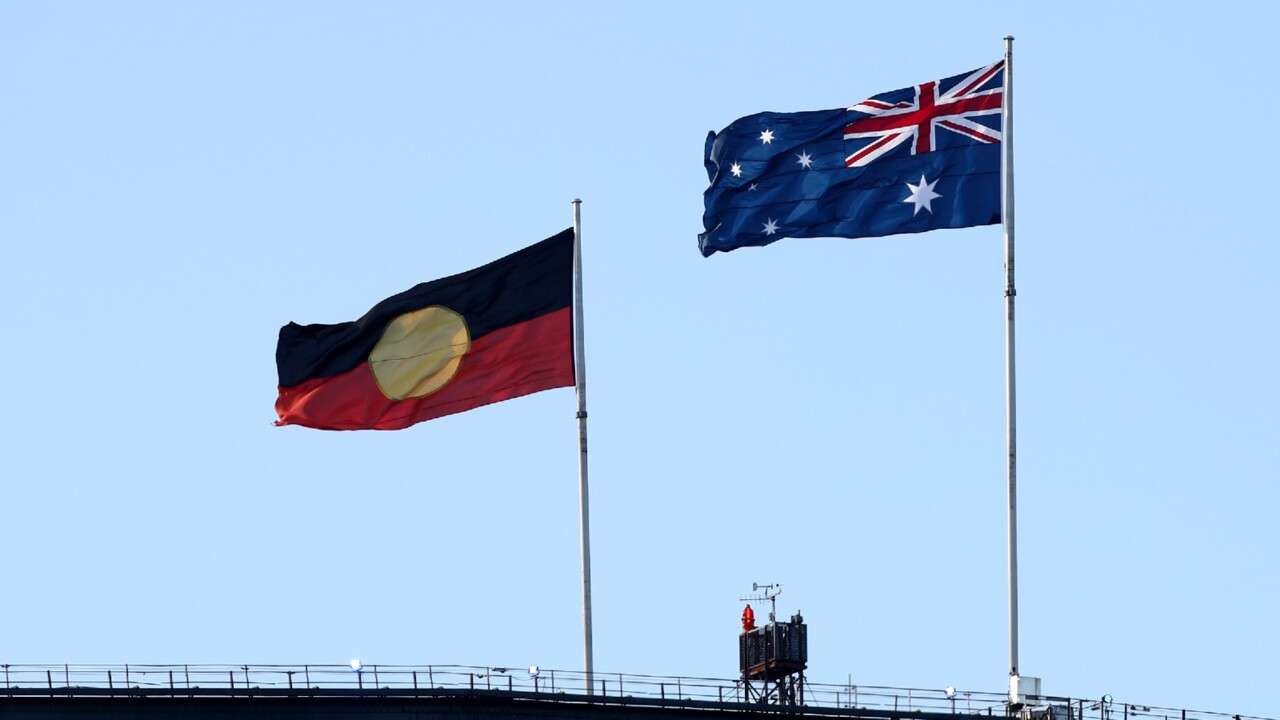
“The thing that they came around to, though, was when we would say ‘the thing that makes it powerful, even though you can’t go to the High Court, even though the parliament can ignore it, the thing that makes it the most powerful is that you did it’,” she says. “It’s that the Australian people voted for the voice, and for recognition through a voice. The Australian people’s voices said yes to this, that’s what makes it powerful.
“That’s why governments will listen. That’s why the parliament will listen. That’s the power of Australians speaking together.”
It proved a compelling argument for Indigenous Australians repeatedly let down by bureaucrats and politicians. “We would walk up and say, ‘Hey, we’re here to talk about the Constitution’. They would always say, ‘Look, you’re just going to come and do this exercise, and you’re just going to go back to Canberra and no one’s ever going to talk to us again’. And that was the importance of the message.”
Davis believes that whatever the result on Saturday “it’ll take a long time for Australia to understand, to really comprehend fully what, what we’ve just been through”.
Davis’s first work as a junior lawyer was in civics education and it has always fascinated her that this is not taught well in schools. She believes it makes us all vulnerable. She cites the often repeated claim that the voice will divide us by race in the Constitution.
“There appears to be very minimal understanding that the Australian Constitutional Order was imbued with inequality and racism. I mean, that’s not to run down or diminish the achievements of Australia, but that is factual,” she says.
“We have the records of debates over the 1890s. We know the Constitution excluded Aboriginal people from the very beginning until ’67 and even then didn’t really fix or address the problem.
“You know, this isn’t made up. The White Australia policy isn’t made up. There’s a races power in the Constitution that’s only used or applied to Aboriginal people in 2023.

“This idea that somehow the voice introduces race into the Constitution is just not factual.”
One element of the debate that stunned Yes campaigners was the claim the voice itself was divisive. Former chief justice of the High Court Robert French addressed this at a forum in Perth in July when he said: “I don’t understand the context in which the word divisive is used. I mean, you can say it’s divisive because people are having an argument about it, but in terms of any inherent divisiveness in the proposal itself, it’s not.”
Davis says the claim was repeated so many times it became accepted. “Using the language of divisiveness is just a populous technique, right, to say it’s divisive and you say it over and over again, it eventually catches on,” she says.
“But there’s nothing divisive about the voice. It was a legal option that came out of a very public and transparent process that was run over 12 years. With the joint select parliamentary committee, there was, from 2011 to 2023, eight processes or mechanisms either from the executive, a prime ministerial mechanism, or parliamentary committees and 11 reports. That’s eight processes and 11 reports in 12 years.
“That’s a huge amount of work. All published, all on the public record from whoa to go. And the idea that what we as Aboriginal people were trying to do in trying to elicit a more enhanced contribution to democratic decision making about our communities, that we were seeking division, is just not true.
“From the Expert Panel to the Referendum Council and those 12 dialogues and that national convention, all our people ever spoke about was bringing the country together and unifying the country and giving Australians a sense of belonging in their country.
“Given they are born and live and work and die on Aboriginal country. We spoke nothing but about peace and the importance of peace for the country, for our land, how integral good relations are to a flourishing land and environment. And I honestly am staggered that people belittle the Uluru Statement, what was a really genuine gesture from our people who participated in a process that they did not want to participate in, and for it just to be demeaned and belittled by people as something that would be created to divide the country, it’s heartbreaking for all those men and women who participated in that process.
“You know, I think about the downstream impact that this will have on our people if the vote is no.
“They offered a hand in friendship after everything that has happened to them and I still … I don’t have words for what that looks like for our people if it’s a no.
“That was a … It was a beautiful statement written by ordinary men and women from communities who put their hands up, ordinary men and women from communities who put their hands up to participate in this process. It was a beautiful gesture to the nation and I hope the Australian people see it for what it is.
“Because if they don’t, one day they will and there will be no more chances to come at this. This moment will never come again.”



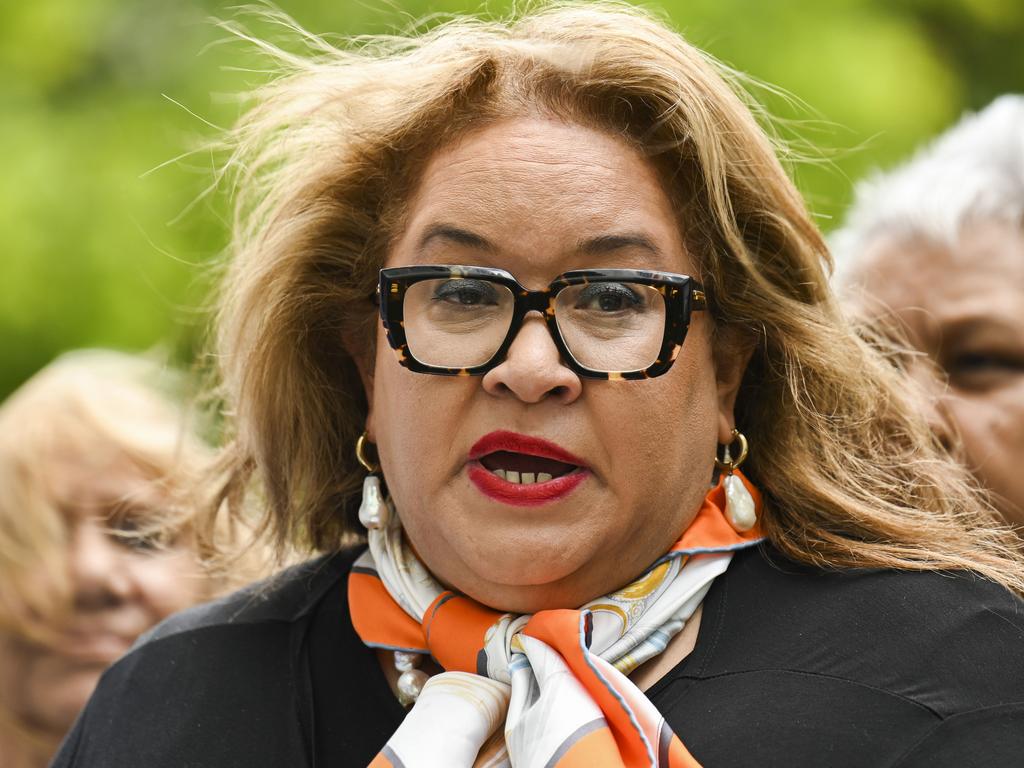
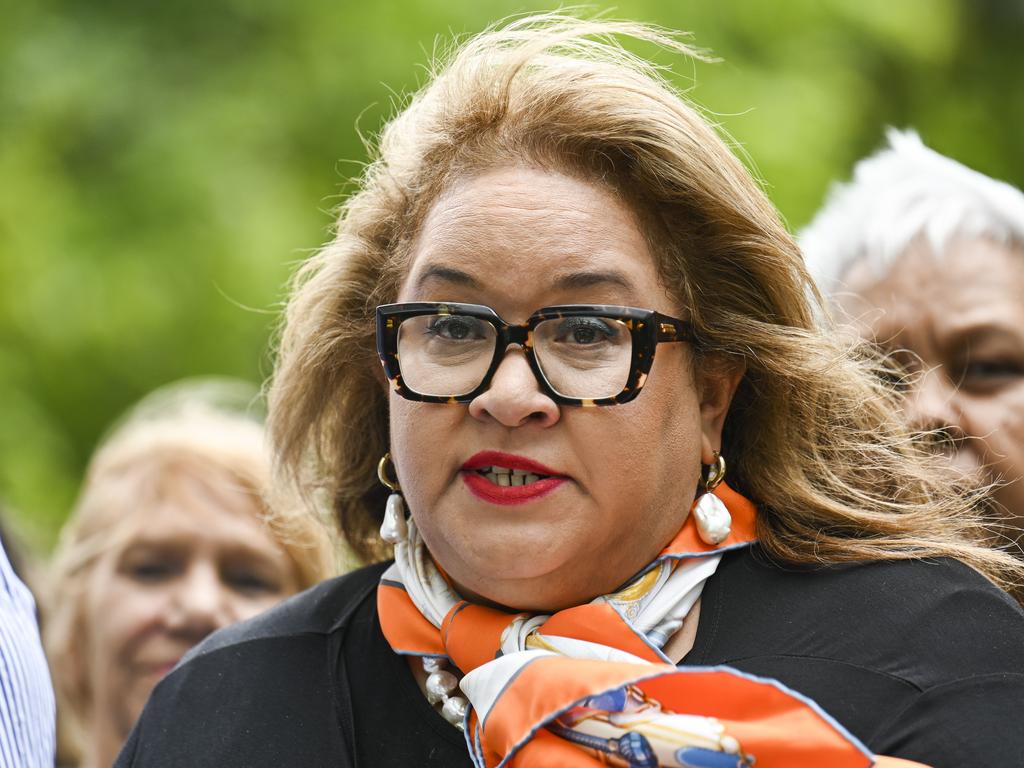
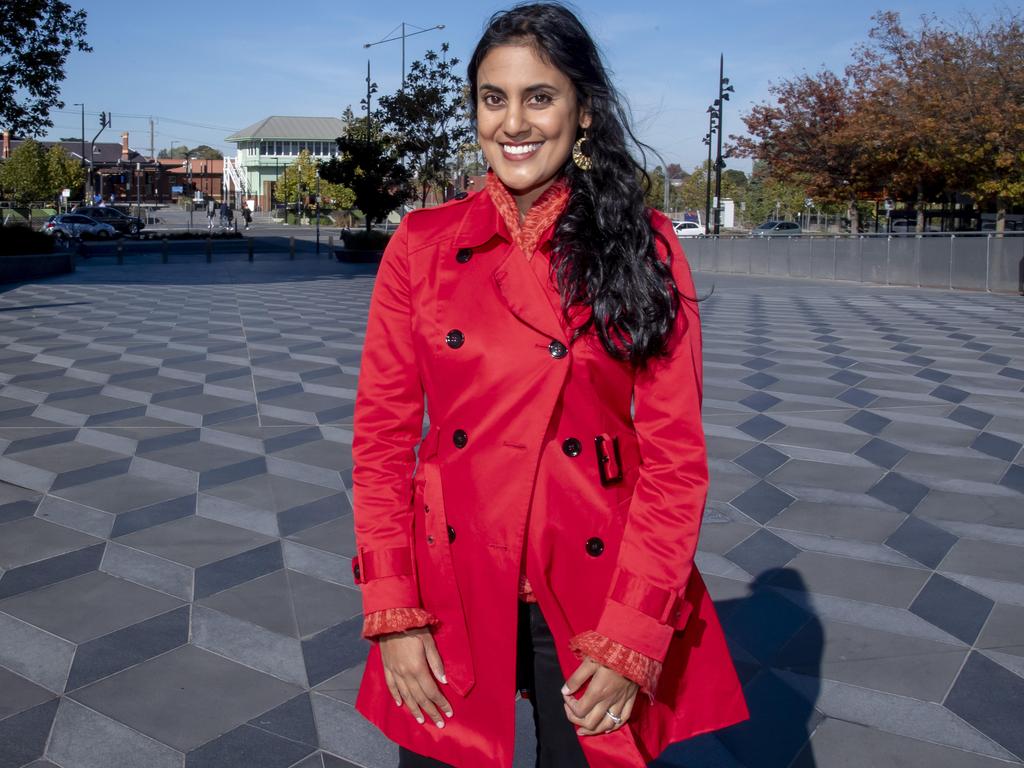


To join the conversation, please log in. Don't have an account? Register
Join the conversation, you are commenting as Logout